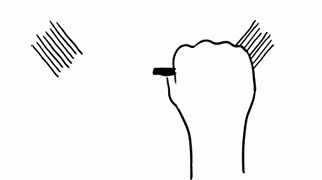
It stands to reason that if you?re taking in fewer calories by fasting, you are also probably taking in fewer vitamins and nutrients. Whether or not that reduction is significant enough to affect your health depends upon how long you fast and whether you were deficient in any area before you started. Additionally, fasting folks often want to know whether supplements count as food in a fast. Most experts say they do not, but the timing of taking them is important.
First, consider that if you?re only consuming water and/or black coffee while fasting, quite a few vitamins can make you feel nauseated on an empty stomach, from B vitamins to zinc. If you are going to take any of these, you probably want to save them for your eating windows. (And if you?re not sure, definitely wait).
Vitamins break down into two essential categories:
Fat-soluble: These vitamins should be eaten with fat-containing food in order for your body to absorb them: vitamin A, vitamin D, vitamin E, and vitamin K. The body stores fat-soluble vitamins in the liver and body fat. Taking these in windows when you aren?t consuming food with fat in it means you?re less likely to absorb them, so there?s no real point. While fasting for less than 5 days, you?ll be burning your own body fat and getting those vitamins that way.
Water-soluble: These vitamins are not stored in your body but excreted during the day if you drink liquids. They include: B-complex vitamins, like B1, B2, B3, etc, folic acid, vitamin C and many others. You can take these on an empty stomach, but again, they might upset it. If you?re doing short term fasting, you aren?t likely to deplete enough of these to affect your health negatively. You only need to consider supplementing if you?re fasting for more than a week.
If you are not already taking vitamin supplements pre-fasting, and are eating a wide range of healthy foods during your eating windows, you probably don?t need to begin supplementing at all. Science has yet to find conclusive evidence that vitamins and supplements have a significant impact on health unless you are deficient in one to begin with. In fact, some can do harm (too much vitamin C can cause kidney stones; too much vitamin E can cause blood-clotting problems).
L-tyrosine: If you?re still interested in supplementing, you might try adding L-Tyrosine. Your brain turns tyrosine into three major neurotransmitters: dopamine, which is linked to our mood and reward centers; norepinephrine, which helps our bodies deal with stress and muscle recovery, and adrenaline, which we need to get motivated and to focus under pressure. L-tyrosine may help you feel stronger and mentally sharper while fasting. You can take this on an empty stomach.
Electrolytes: The supplements you?ll most likely need to replenish during a fast are not vitamins at all, but electrolytes, substances the body needs to regulate and maintain a number of key bodily functions, and which are depleted through physical activity and fasting. The following are key electrolytes you?ll want to stay on top of (but don?t take in excess). The top two to pay attention to are sodium and potassium.
Sodium. If you want to avoid headaches and muscle spasms, check the recommended daily allowance for your weight and gender.
Potassium. This keeps your heart functioning well and your energy high.
Magnesium. Among many jobs, it helps regulate muscle and nerve function, and can aid in sleep.
Zinc. You might take zinc to help with the common cold, but it?s best known for aiding in testosterone production and nerve function. Be sure to take this with food, however, as it can cause nausea otherwise.
Calcium. Your bones and your muscles both rely upon calcium. Contrary to what the dairy industry might want you to think, you don?t absorb it best through eating cheese and milk.
Focus on replenishing your electrolytes and keep up any vitamins you already take if possible. The longer you fast, the more likely you are to need supplementation, but most importantly, pay attention to how you feel and make sure your doctor knows you?re fasting. When you do eat, be sure to eat a variety of foods, or adopt a diet such as the Mediterranean diet, (a lifestyle change, not a fad diet), which is associated with reduced risk factors in a number of health conditions.


